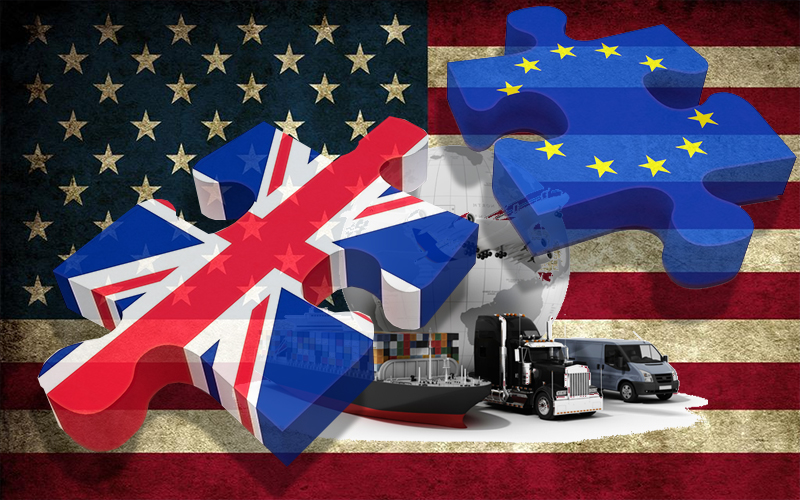While the regulatory implications for U.S. shippers remain unclear, many economists and trade analysts suggest that the U.K. vote to terminate its membership in the European Union after more than 40 years could be disruptive.
“In what many are calling a “stunning rejection” of the current political and economic order, British citizens voted 52% to 48% to leave the EU in yesterday’s referendum vote, a differential of more than 1 million ballots, according to Bloomberg.
The results prompted Prime Minster David Cameron to resign and sent shock waves through financial markets. The pound dropped to the lowest level in nearly thirty years and European stocks tumbled. Safe havens, on the other hand, such as the yen, the dollar and gold surged.
Lindsey Piegza, Chief Economist with Stifel Fixed Income, believes the U.K. will now wait until a new Prime Minister is in place before executing exit talks and invoking Article 50 of the Lisbon Treaty.
“But several questions remain,” she says. “What is the impact of a Brexit for example. We are already seeing much of the impact span across financial markets as nervous investors flee from the region.”
Piegza said it also raises questions about the Fed.
“While not an official component of the Fed’s dual mandate, global market stability has been a significant factor in determining the appropriate pathway for monetary policy here at home,” she said.
Thomas J. Donohue, president and CEO of the U.S. Chamber of Commerce, maintained that it is too early for U.S. shippers to panic, however.
“Britain has a proud history of leadership in free enterprise and free trade and as a leader of the Atlantic Alliance. Redoubling this commitment to openness in trade and investment, prudent but not overbearing regulation, and close cooperation with friends and allies abroad will be essential in the months ahead,” he said.
Read: ‘Explosive Shock’ As Britain Votes To Leave EU
Donahue noted that investments in Britain are worth more than half a trillion dollars, and many of those investments were made to reach not just British consumers but those in the European mainland as well.
“We are committed to working with the U.K. government to ensure that the priorities of these stakeholders are taken into account in the debates that lie ahead,” he added.
Related: Brexit, the Next Big Disruption for the Supply Chain?

About the Author
Follow Robotics 24/7 on Linkedin
Article topics
Email Sign Up


















